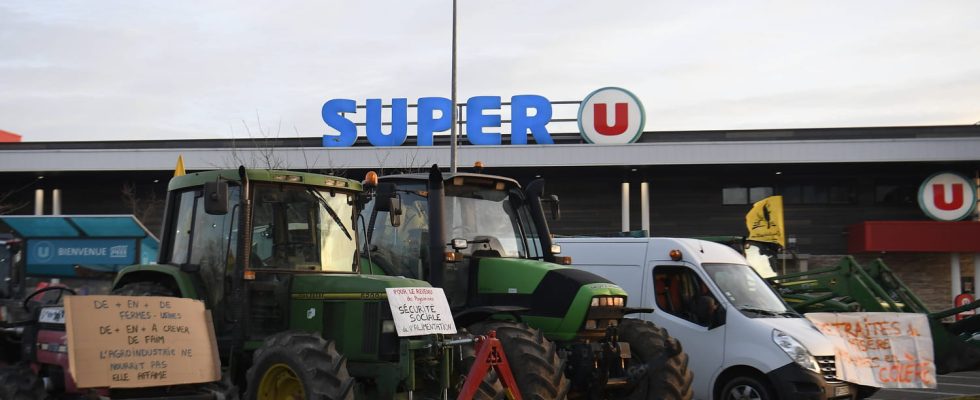More and more brands are joining purchasing centers based abroad to negotiate prices with their suppliers. A way to circumvent French law?
Since 2014, major retail brands like Carrefour, Leclerc and Super U have joined forces in purchasing centers to pool their orders and buy cheaper in large quantities. But recently, certain brands are choosing centers abroad and joining forces with other European brands to carry out negotiations on the scale of several countries. What happens to the EGalim law in all this?
The EGalim law is this French legislation which gives weight to producers in negotiating prices with the agroindustry and mass distribution. Its circumventions are the heart of the anger of the agricultural world. By outsourcing its negotiations abroad, is mass distribution trying to avoid French rules? The brands deny this and simply speak of their desire to keep prices competitive on the European market.
“Which law should apply?”
Thus, in 2016, E. Leclerc joined the Eurelec Trading purchasing center, based in Brussels, which it now shares with a German group and a Dutch group. Carrefour has joined the Eureca platform in Madrid, which trades for six European countries. All claim to use these platforms mainly to negotiate with large international suppliers, as well as with some large French agroindustrial groups such as Danone or Lactalis.
But according to Boris Ruy, associate lawyer at the Fidal firm, interviewed by The world, these negotiations now also concern “smaller manufacturers, who until then did not have the profile”. Therefore, “what law should apply in the context of these negotiations outside our borders?” Asks Nicolas Genty, lawyer and founder of the Loi & Stratégies firm. In September 2023, the CEO of Système U Dominique Schelcher, whose Everest purchasing center is located in the Netherlands, assured that negotiations were always carried out “in compliance with the EGalim law, it is written in the annexes of our alliance.
“Sometimes abusive constraints”
The question was debated in the Senate on Thursday, February 1: centrist senator Anne-Catherine Loisier denounced these delocalized platforms which, according to her, would allow large-scale distribution “to free themselves from the framework of negotiations defined by the EGalim and impose constraints that are sometimes abusive for suppliers under French law.
Wednesday January 31, the Minister of the Economy Bruno Le Maire announced that it was going to “launch specific controls on European purchasing centers to [s]“ensure that there is no circumvention (…) of the rules of the EGalim law”.
